Junior Seau: 2015 HOF Finalist
Jan 27, 2015
Written by
Committee Chairman
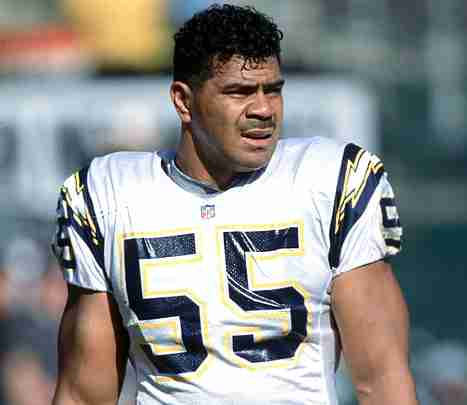
Having a lot of fun doing our Baseball debates with two of my bloggers, DDT and the Phillies Archivist, I wanted to repeat the same idea with this year’s Football Finalists, but due to time constraints I will take a deeper look at each candidate myself and offer a few thoughts as to their Hall of Fame candidacy
Next, I take a look at former Linebacker, Junior Seau.
When Seau retired, virtually every football fan and journalist pegged him as a surefire first ballot inductee and why not? Seau was regarded for many years as the top Linebacker in the National Football League, and has the trophies to prove it.
The former linebacker was the consensus Defensive MVP in 1992, a twelve time Pro Bowler, a six time First Team All Pro Selection, a member of the 1990’s All Decade Team and the NFL Alumni Linebacker of the Year in 2003. Stat wise, he has 56.5 Quarterback Sacks, 18 Interceptions and 1,849 Tackles over a twenty year career. He has suited in the second most games of any Linebacker.
It can be criticized that Junior Seau never won the Super Bowl, though he has been to two, the first with the San Diego Chargers where he was a major reason they got as far as they did in the first place. It should also be noted that Seau also won the Walter Payton Man of the Year, an accolade showing his charitable work.
Perhaps that is why his suicide caught all of us by surprise when he committed suicide as we all thought he was such a happy well adjusted man who loved life. We did not know about the concussion related injuries and depression that he had about no longer being a football player and the other issues he had.
While the Pro Football Hall of Fame has posthumously inducted players in the past, there has never been one before where people have pointed at the injuries suffered at the gridiron as a possible cause to his death.
This should not keep him out, but it does raise the question of the costs of playing football are, and though Seau should be in the Pro Football Hall of Fame, and should go in immediately, there will be articles written about the cost of playing the game.
Could that prevent him from getting in? If it was a player with less accolades that could happen, but this is a player who was one of the best Defensive players ever, so it is not only likely to happen, he will get in on the first ballot.
Anything else is criminal.
Jerome Bettis: 2015 HOF Finalist
Jan 26, 2015
Written by
Committee Chairman
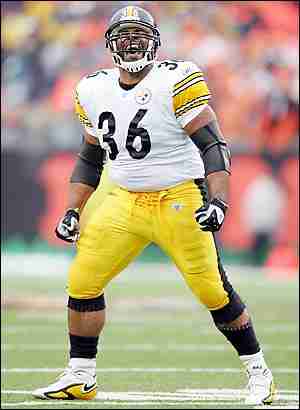
Having a lot of fun doing our Baseball debates with two of my bloggers, DDT and the Phillies Archivist, I wanted to repeat the same idea with this year’s Football Finalists, but due to time constraints I will take a deeper look at each candidate myself and offer a few thoughts as to their Hall of Fame candidacy
Next, I take a look at former Running Back, Jerome Bettis.
This is “The Bus’s” fifth consecutive year as a Hall of Finalist, but this year seems different, as there are not as many obstacles in his way. There had been higher profile Running Backs ahead of him in the past, and while Terrell Davis is also a Finalist, based on previous voting patterns, it stands to reason that he is behind him in line. Bettis also made it to the final ten last year showing that he is very close to the door.
He should be. Amassing 13,662 Rushing Yards and 91 Touchdowns over his career, the popular Running Back is considered one of the best “big” backs ever and statistically he is among the elite. Bettis has six Pro Bowls and two First Team All Pro selections to his credit, and in 1996 he won the NFL Alumni Running Back of the Year, indicating that there was a sizable segment that considered him the best at one point in his career.
Character (good or bad) should not really be a factor in getting into the Hall of Fame, but who are we kidding? Where it hurts Charles Haley, it helps Jerome Bettis, a former Walter Payton Man of the Year Award (2001), and was also named the PFWA Good Guy Award in 2005. Through broadcasting, Bettis remains in the public eye and still has a high level of respect within the community.
Bettis would win a Super Bowl Ring in his final season in the NFL, but he was largely ineffective and almost cost the team the game, so that is not exactly a selling point.
Personally, I have always viewed Jerome Bettis as a marginal Hall of Fame talent, but one if he got in would not bother me, and if he never got in would be fine also. Saying that, this is his year, and all signs are for the bus to make a final stop in Northern Ohio.
Terrell Davis: 2015 HOF Finalist
Jan 25, 2015
Written by
Committee Chairman
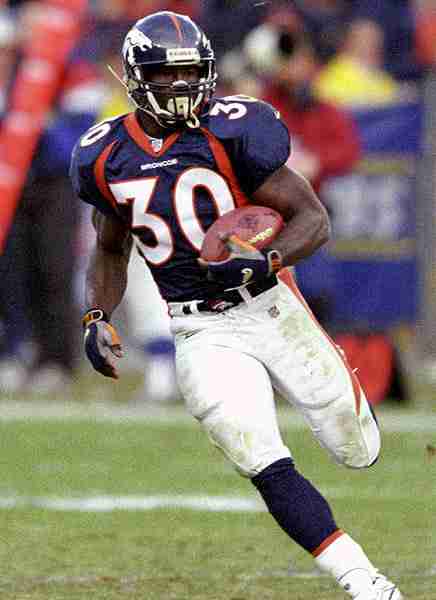
Having a lot of fun doing our Baseball debates with two of my bloggers, DDT and the Phillies Archivist, I wanted to repeat the same idea with this year’s Football Finalists, but due to time constraints I will take a deeper look at each candidate myself and offer a few thoughts as to their Hall of Fame candidacy
Next, I take a look at former Running Back, Terrell Davis.
For the first time in eight years, Terrell Davis has made it to the Final Round, a feat inconceivable four years into his career when he had just completed a three year stint as the best Running Back in the National Football League.
Those first four seasons were among the most impressive by any Running Back in NFL history. Davis would win the Rushing Title in 1998 and would lead the league in Rushing Touchdowns twice in 1997 and 1998, and is one of the rare people to rush for 2,000 Yards in a NFL season. More importantly, Davis would be a featured performer taking the Denver Broncos to two consecutive Super Bowls, where he would be named the MVP of his first one, and was the MVP of the NFL in the regular season the year after.
So what happened?
Like so many professional athletes, Terrell Davis succumbed to injuries way to early in his career and in his final three seasons only saw the Running Back play 17 Games. He just wasn’t the same player and there are many who look at Hall of Fame players for Canton and expect that they should have longer careers than only seven NFL campaigns.
While I can understand that sentiment, a very important fact remains is that Davis WAS at one point the undisputed best Running Back in the NFL and not just for a moment. That reality makes him a bona fide contender for the Hall of Fame and despite the brevity of his career makes him someone that I would personally vote for, champion for and induct into the Pro Football Hall of Fame.
Saying that, will he get in?
Not this year, as the patterns we have seen have shown as that those who have “toiled” in the Semis and eventually make it to the Finals never get into the Hall of Fame the year they finally break through.
Although this is very unlikely to be the year that Davis breaks through…well, we can hope can’t we? I am sure that there are many in the state of Colorado thinking the same thing.
Mick Tingelhoff: 2015 HOF Finalist
Jan 25, 2015
Written by
Committee Chairman
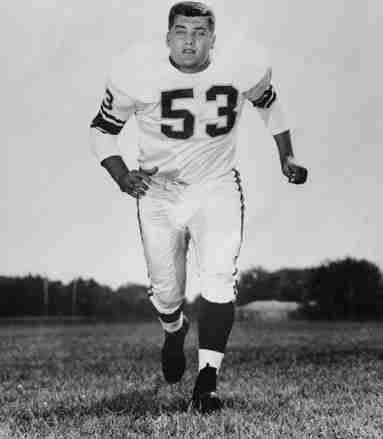
Having a lot of fun doing our Baseball debates with two of my bloggers, DDT and the Phillies Archivist, I wanted to repeat the same idea with this year’s Football Finalists, but due to time constraints I will take a deeper look at each candidate myself and offer a few thoughts as to their Hall of Fame candidacy
Next, I take a look at former Center, Mick Tingelhoff.
Tingelhoff is part of all four Minnesota Vikings teams in the 1970’s that made it to the Super Bowl, though failed to win the big one. Saying that, while he was still regarded as an above average Center in the National Football League, it was in the 1960’s that he was an elite performer.
That decade, Tingelhoff went to six Pro Bowls, five of which saw him named as a First Team All Pro Selection. His overall durability saw him play 240 consecutive games, all of which as a starter, a mark that at the time of his retirement placed him second overall.
Tingelhoff, who is already in the Minnesota Vikings Ring of Honor and has had his number retired by the organization, has long been a player that Vikings fans have been clamoring for to enter the Hall of Fame, and history shows that they will likely get what they want.
Over 65 percent of past Senior Candidates have gotten in, and now with their being only one on the ballot, many, including us think that Tingelhoff will no longer be on the outside looking in, which is how it should have been for years.
Will Shields: 2015 HOF Finalist
Jan 24, 2015
Written by
Committee Chairman
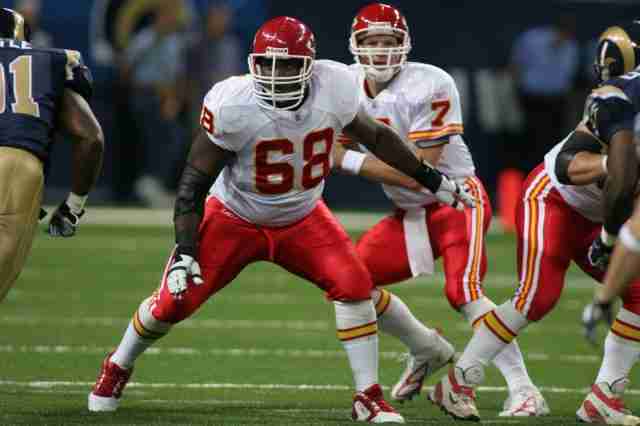
Having a lot of fun doing our Baseball debates with two of my bloggers, DDT and the Phillies Archivist, I wanted to repeat the same idea with this year’s Football Finalists, but due to time constraints I will take a deeper look at each candidate myself and offer a few thoughts as to their Hall of Fame candidacy
Next, I take a look at former Offensive Guard, Will Shields.
This is Shields fourth consecutive year as a Finalist, which is also his fourth on the ballot. The Right Guard started 223 of his 224 Games Played and of his fourteen seasons, he was a Pro Bowl Selection for twelve of them, not to mention a First Team All Pro Selection twice.
A consistent player, Shields was the steadying force in what was predominantly one of the better Offensive Lines in the NFL and was rarely beat, much to the delight of the his Quarterbacks, Elvis Grbac and Trent Green who both had 4,000 Yard Passing seasons.
What has kept Shields out thus far is the high amount of Offensive Linemen who have been eligible at the same time, and this year is no exception with Orlando Pace and Senior Candidate Mick Tingelhoff, the latter of which has a great chance of getting in based on the recent frequency in which Senior Candidates have been getting inducted.
Saying that, I think he will get in (and should) this year, but if he is passed over again, the former Kansas City Chief won’t wait long.
Jimmy Johnson: 2015 HOF Finalist
Jan 23, 2015
Written by
Committee Chairman
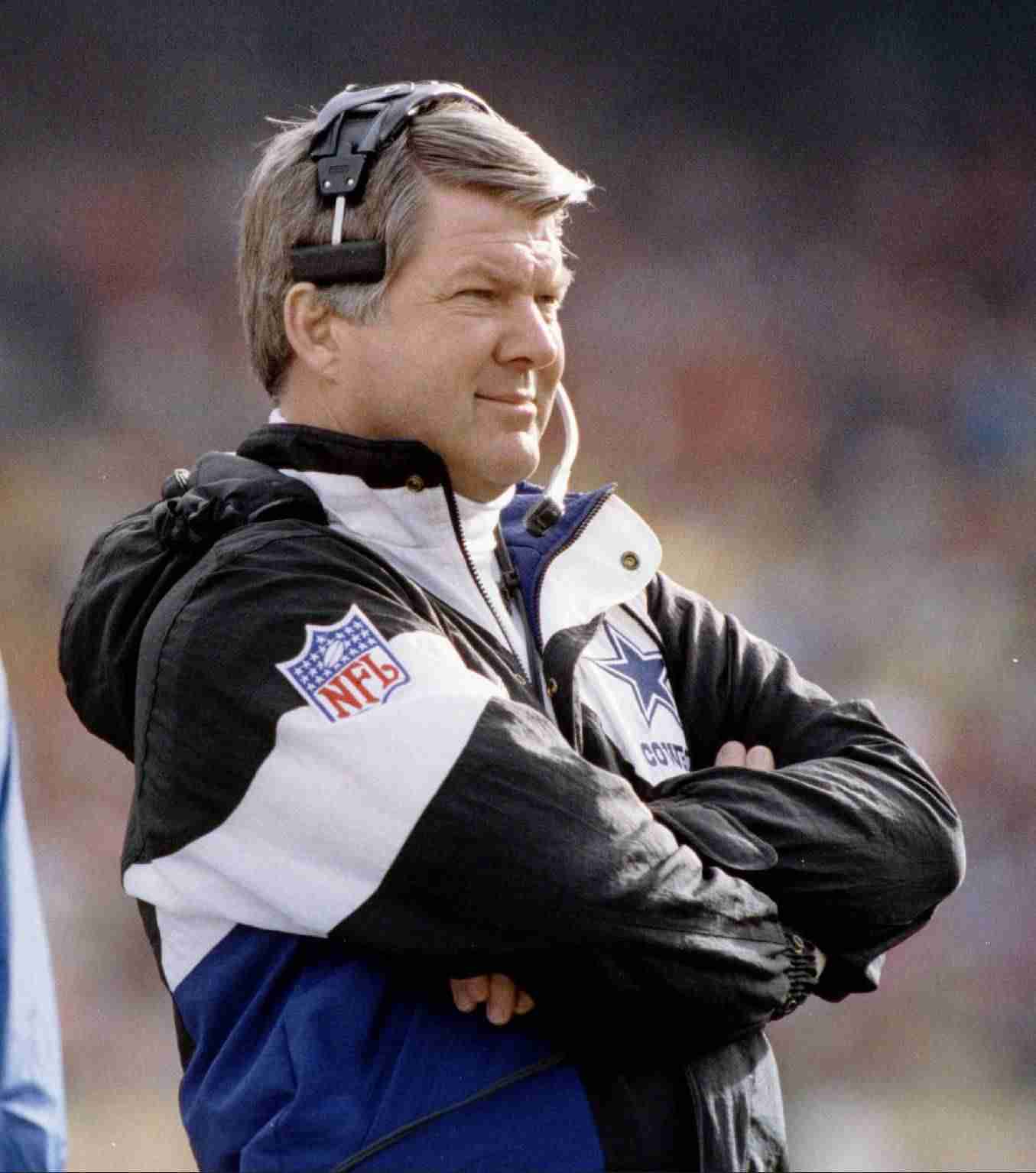
Having a lot of fun doing our Baseball debates with two of my bloggers, DDT and the Phillies Archivist, I wanted to repeat the same idea with this year’s Football Finalists, but due to time constraints I will take a deeper look at each candidate myself and offer a few thoughts as to their Hall of Fame candidacy
Next, I take a look at former Head Coach, Jimmy Johnson.
The former Dallas Cowboy and Miami Dolphin Head Coach has been eligible for the Pro Football Hall of Fame for over a decade but this is the first time he made this far. The initial question might be why, but it appears that longevity would have to be the answer.
Johnson would only coach for nine seasons and his 80 and 64 record is well below a lot of other Head Coach’s winning percentage is not in line with others in Canton. That is something that probably should not matter, but having a win total well under 100 has to be something that has prevented him getting him this far until now.
Now that being true, he does have three major things going for him, and two of them are Super Bowl Rings. You pay coaches to win the big one, and his record is skewed a lot from that 1 and 15 inaugural season in Dallas, but ask Cowboys fans if they care about that now? They don’t and nor should they based on what he built.
What also works in his favor is that Johnson was the architect of putting together the team (he was the head of all those decisions) and through drafts and the brilliant trade of Herschel Walker that netted him a plethora of draft picks, he built a mini-dynasty that would win another Super Bowl under Barry Switzer that largely was due to the personnel decisions by Johnson.
Perhaps the best comparison is John Madden, who like Johnson had a relatively similar career with ten seasons as the Raiders Head Coach and one Super Bowl win, though his regular season record was much better (100-32-7), though wouldn’t he heave traded some wins for a second Super Bowl? Also, both remained largely in the public eye with their broadcasting career, and make no mistake, that does subconsciously play into the minds of many voters.
For me, the most important thing is the two Super Bowl Bowls, and arguably an assist on the third, which in my mind makes him not only a Pro Football Hall of Fame Finalist, but an inductee as well, and he should have been a Finalist long ago.
If it was up to me he will get in this year, but he won’t. Tony Dungy will likely get that spot instead.
Marvin Harrison: 2015 HOF Debate
Jan 21, 2015
Written by
Committee Chairman
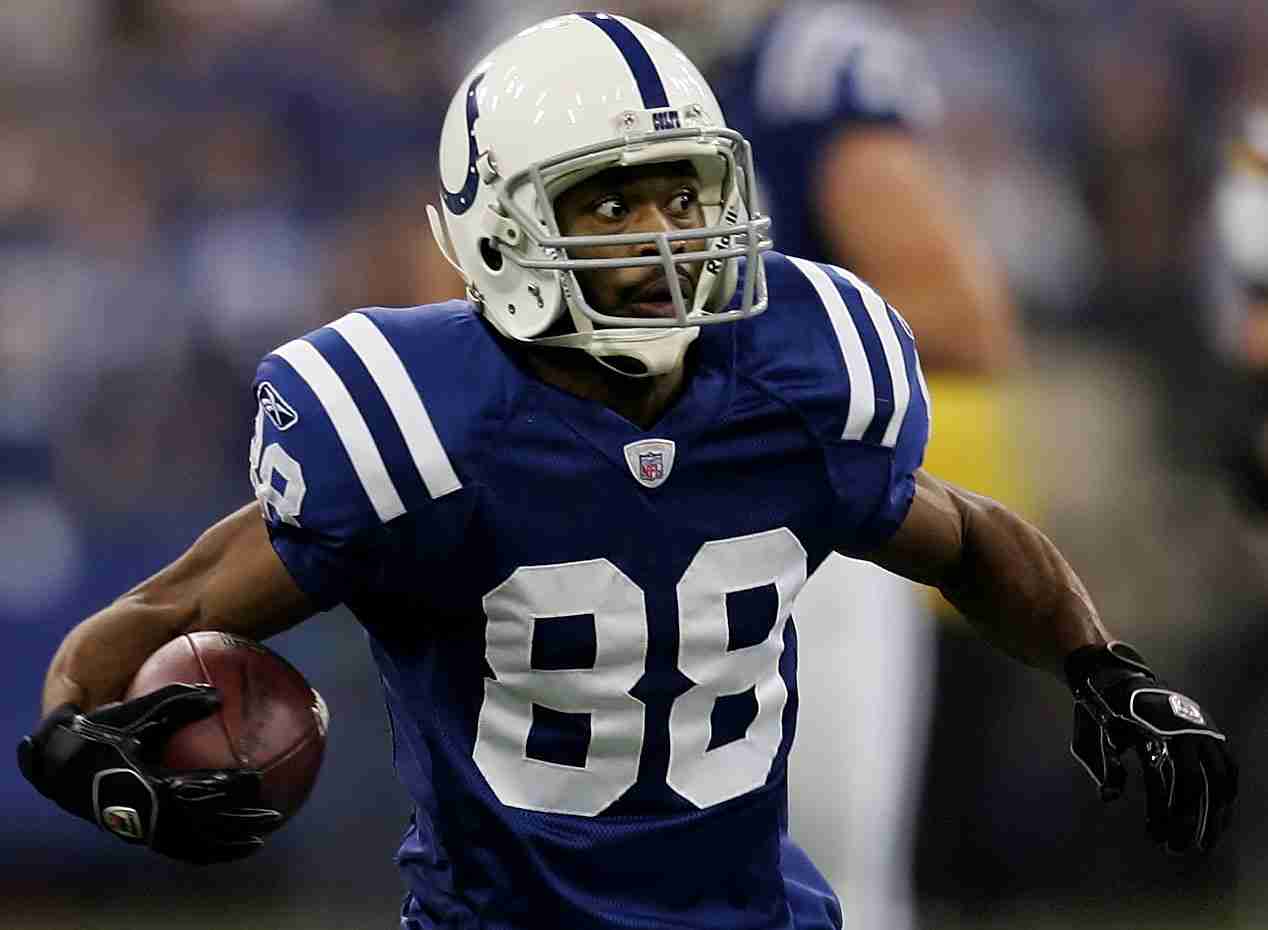
Having a lot of fun doing our Baseball debates with two of my bloggers, DDT and the Phillies Archivist, I wanted to repeat the same idea with this year’s Football Finalists, but due to time constraints I will take a deeper look at each candidate myself and offer a few thoughts as to their Hall of Fame candidacy
Next, I take a look at former Wide Receiver, Marvin Harrison.
The biggest shock last year was that Marvin Harrison did not get in last year on his first year of eligibility, as stat wise he was the most accomplished of the Wide Receivers on the ballot. Harrison caught 1,102 passes for 14,580 Yards and 128 Touchdowns, career numbers that fit the resume of a Hall of Fame caliber player, even in this inflated era. He would twice lead the NFL in Receiving Yards, would three times be named a First Team All Pro three times and also was once named the NFL Alumni Wide Receiver of the Year.
Those accolades show that not only did Marvin Harrison have the durability, he had a claim at one point as the top Wide Receiver in the game, a “two for two” in what should make a player a Hall of Fame lock.
So what kept him out last year?
Harrison has had shooting incidents, a couple of which attached to drugs and drug dealers. Now, it needs to be stated that Marvin Harrison was never convicted on any charge, but it is a stigma that has followed him, as has the fact that he was not always the most cooperative with the media.
Still, as stated many times in this site, character should not be a factor (unless there is something far more serious) should not keep a man out of the Hall of Fame, and Harrison has every necessary gridiron credential.
My prediction is that the former Indianapolis Colt gets in this year, and he really should not have to wait another year. It’s already been too long.
Charles Haley: 2015 HOF Finalist
Jan 20, 2015
Written by
Committee Chairman
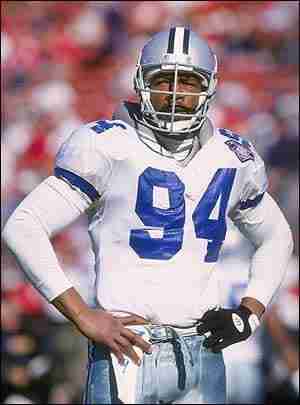
Having a lot of fun doing our Baseball debates with two of my bloggers, DDT and the Phillies Archivist, I wanted to repeat the same idea with this year’s Football Finalists, but due to time constraints I will take a deeper look at each candidate myself and offer a few thoughts as to their Hall of Fame candidacy
Next, I take a look at former Defensive End and Linebacker, Charles Haley.
This is the sixth consecutive year that Charles Haley has been named a Hall of Fame Finalist, and every single time that someone extolls the virtues of Haley for enshrinement they point to the same thing every single time:
Five Super Bowl Rings.
And why shouldn’t they do mention that fact over and over again? There is no player who ever competed in the National Football League who can make that claim, and why else do you play the game if it isn’t to become a champion? Haley wasn’t just a bystander, he was a pivotal figure in these championship teams with both the Dallas Cowboys and San Francisco 49ers and is one of the few players who has over 100 Quarterback Sacks (100.5). That is the most important stat, and one you can’t not mention when looking at Haley’s Hall of Fame credentials.
Haley was also someone who had successful seasons at both Defensive End and at Linebacker, and went to the Pro Bowl and had First Team All Pro Selections at both positions, overall accumulating two First Team nods and five Pro Bowl selections, which again are decent numbers, though we have seen many other defensive players with five Pro Bowls who really have not come close to getting into Canton, though that is not what many think has kept him out so far.
As much as you would hear John Madden wax poetic about his skills on Sundays, you would equally hear about character issues that Haley had. The defensive standout, who would later be diagnosed as bipolar, was absolutely detested by the media and though that should not be a factor for Hall of Fame voting, it is voted on by humans who mostly have interacted with the people they vote on. The human factor plays a part, right or wrong.
It is not that he also did not ruffle teammates the wrong way as he famously had to be restrained from attacking Quarterback, Steve Young following a loss to the Oakland Raiders and this was not an isolated incident.
Still, there have been many past teammates, namely Troy Aikman and his former coach, Jimmy Johnson who have been vocal advocates of Haley getting into the Hall. That kind of support has to help though as much as he has become a finalist over and over, there never seemed to be any year where it felt that he was going to get over that hump.
This year doesn’t feel that much different either and it wouldn’t surprise me to see him fall short again.
Kevin Greene: 2015 HOF Finalist
Jan 18, 2015
Written by
Committee Chairman
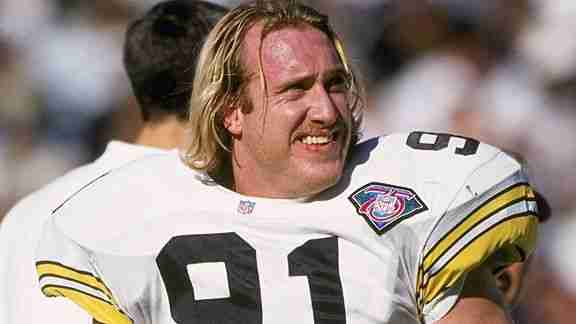
Having a lot of fun doing our Baseball debates with two of my bloggers, DDT and the Phillies Archivist, I wanted to repeat the same idea with this year’s Football Finalists, but due to time constraints I will take a deeper look at each candidate myself and offer a few thoughts as to their Hall of Fame candidacy
Next, I take a look at former Linebacker, Kevin Greene.
The Quarterback Sack is the sexiest defensive statistic in Football, and though the Interception is a far bigger game changer, the Sack defines the game. Despite the changing of the rules designed to protect the Quarterback, it remains an exciting play and the most coveting thing a Linebacker can get.
Kevin Greene recorded 160 of them.
Although the sack statistic is certainly aided by schemes and surrounding personnel, it is an impressive accomplishment and one that places him third overall behind Bruce Smith and Reggie White, both of whom were inducted into the Hall of Fame. Greene is also a two time leader in that category leading the National Football League in that stat in 1996 and 1998, the latter of which when he was 34 years old.
This bears mentioning, as though he was recording multiple sacks in his 20’s, he was a more complete player in his 30’s and it was this decade of his life where he was also recognized as one of the top defensive players of his time. Greene would be named the NEA Defensive Player of the Year in 1996, and would also be named the NFL Alumni Linebacker of the Year.
Greene would also be named to five Pro Bowls, two First Team All Pro nods and was also named to the 1990’s All Decade team, decent numbers and though many other Defensive players have been named to more Pro Bowls and All Pro squads, he wasn’t that far off from consideration in his early years.
Entering his fourth consecutive year as a Finalist, Kevin Greene again is not the highest profile Linebacker left and could easily be pushed aside for Junior Seau, and frankly if it comes down to picking only one Linebacker, it should be Seau, though Greene remains the top pass rusher on the ballot, a fact aided by Michael Strahan’s induction last year.
That is another factor that works against him, as he doesn’t have the same star quotient those other defensive players who got in recently, namely Strahan and Warren Sapp who got in the year before.
That shouldn’t matter, but though he did become a more balanced player later in his career, he is measuring up against others that were.
Kevin Greene should eventually get into the Hall of Fame, and probably should. Personally, the more I look at his career, the more I am swaying towards inducting him, as originally, I felt he was a bit too one dimensional. I will revert back to the word “eventually” because I don’t think he is getting in this year, but he won’t have to wait much longer.
Tim Brown: 2015 HOF Finalist
Jan 17, 2015
Written by
Committee Chairman
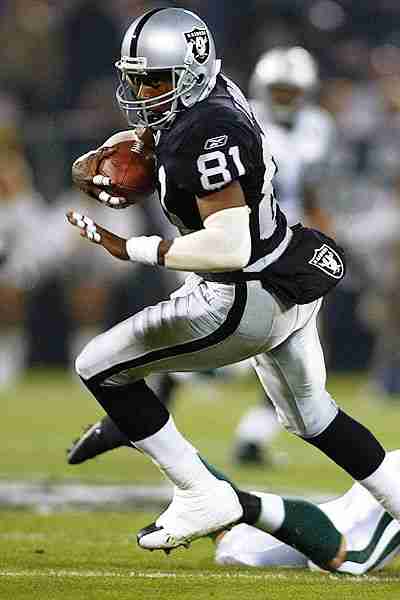
Having a lot of fun doing our Baseball debates with two of my bloggers, DDT and the Phillies Archivist, I wanted to repeat the same idea with this year’s Football Finalists, but due to time constraints I will take a deeper look at each candidate myself and offer a few thoughts as to their Hall of Fame candidacy
Next, I take a look at former Wide Receiver/Returner, Tim Brown.
Tim Brown first became eligible for the Football Hall of Fame in 2010, and was named a Finalist that year, and has been every year since. Brown has some substantial Hall of Fame credentials but has been caught in a logjam of more deserving Wide Receivers namely Cris Carter and Andre Reed who had a bit of a wait themselves.
Again, Brown is not the highest regarded Wide Receiver who made the Finals as Marvin Harrison, who personally I was shocked when he was not a first ballot inductee last year, did not get in. Last year, when the Hall of Fame reduced from fifteen to ten names, Harrison made the final ten, and Brown did not, indicating that he is still not on the top of the wideout pecking order.
This is not to say that he is not a Hall of Famer caliber player, because he does have a lot on his resume. What he lacks in First Team All Pro Selections (he has none) and Super Bowl Rings, he makes up for in Pro Bowl selections (nine) and Special Teams credentials.
Brown’s first Pro Bowl was as a Special Team selection and in that rookie campaign he would lead the NFL in Kick Return Yards. He would later lead the NFL in Punt Return Yards in 1994 and overall would contribute a total of 4,555 Return Yards and 4 Touchdowns; a mark that no other Wide Receiver can state.
Does that matter?
It should, but as we know, the Pro Football Hall of Fame never has put a lot of premium on Special Teams players, so why should we expect that they will care about a Special Team “add on” to a Wide Receiver career?
Perhaps that is the problem, as Tim Brown’s Wide Receiving was decent, he was never ever considered among the top two in his position, and if he ever was at any given time, he could at least cling to that.
That does matter, as being considered an elite performer at an offensive skill position he would probably be indicted already. Just one season, in addition to his career statistical accomplishments would have made him impossible to overlook by this point.
Even with the inflated statistics that exist within Wide Receivers at this time, Tim Brown is still in the top five in Receptions and Receiving Yards and while he was able to successfully to climb the all time stat ladder, he still did so in an era where he had a lot of competition.
With his additional dimensions on Special Teams and his accumulated totals on Offense, he would receive my vote, and has waited long enough.
Saying that, I don’t think he will get the call this year either.

